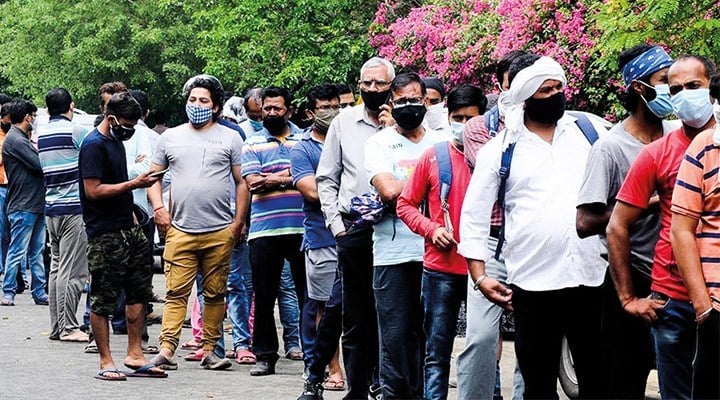Covid-19: Lifestyle changes needed to stop the next pandemic
Prof. Carl Martin Allwood from Gothenburg University argued that we need to change our lifestyles to stop the next pandemic, while Dr.Hande Güzel from Cambridge University highlighted the inequality and racism caused by the pandemic.

Didem MERCAN
There have been rapid and strong changes in our lives, from our working life to our shopping methods and even to the way we communicate with others since the beginning of the pandemic. While the whole world continues to live a life with restrictions due to Covid-19, increasing stress, changing conditions and uncertainty also affect human behaviour and patterns within societies.
Professor Carl Martin Allwood from Gothenburg University, Department of Psychology and Dr. Hande Güzel Teaching Associateat Cambridge University, Department of Sociology assessed the emotional, behavioral and psychological Impact of the COVID-19 Pandemic to Birgün.
Noting that the effects of Covid-19 on human psychology in modern societies are likely to be many, Carl Martin Allwood said, “humans are likely to be able to appreciate the social dimension in their lives now that covid isolation has demonstrated to many that it is painful to be without the company of other humans. Moreover, humans may become more aware that they live in a very fragile world and that they need to take more precautions to stabilize their security when it comes to sick-care including gearing-up the facilities for vaccine production and sick-care facilities. Thus, their risk-awareness may have increased”.
“Consumption seems to have gone down to some extent although not so much. In order to stop the next pandemic, which experts say will come not too far into the future, we need to change our way of life and how we relate to nature. It seems that modern living and a reckless exploitative attitude to nature have contributed to the Covid-19 pandemic. This, by bringing animals and human closer together which makes it easier for diseases to spread from animals to humans as has most probably been the case with Covid-19. The risk is that human memory is short-lived. When people have been vaccinated, they are likely to want to start consuming (clothes, travel, entertainment, etc.) again at the level they did, or higher, compared to before the pandemic” he stated.
IMMIGRANTS HIT HARDER BY COVID-19
“Covid-19 may cause people to be more afraid of strangers due to the risk of getting the disease from them. At least in western countries immigrants have been harder hit by Covid-19 due to their poorer living conditions (more people per square meter) and that they are more exposed to others in their working life. Thus, other people in those societies may be afraid to come too close to immigrants who look like they may come from poorer conditions and this may cause people to perceive immigrants as dangerous and lead to increased racism” Allwood said.
THE YOUNGER GENERATION, GENDER AND SEXUAL ORIENTATION
Dr.HandeGüzel, Teaching Associate at the Department of Sociology, University of Cambridge stated that many changes in world history have taken place in unexpected times and ways and that we have to expect unexpected changes, especially when consider the dimensions of global warming and the destruction of nature.
“The pandemic has already triggered racism and it is unfortunately inevitable that it will continue to trigger. We see examples of this both in the media depictions of Asian people and acts of violence against this population. Apart from this, we can say that nationalism is currently in a process of transformation, especially through borderand vaccine distribution policies. How governments will manage these policies in the next few years will be the determining factor in where nationalism will eventually land” she added.
Assessing the effect of the pandemic on the Turkish social structure, Dr. Hande Güzel said, “The fact that the society is even more unequal is indisputable, although it was previously assumed that the pandemic affected everyone equally.The deepening of gender inequality is one of the most important points.The fact that it is women, more than men, that leave the workforce to take care of their children during the pandemic and that public personnel with children under the age of 10 being considered on leave reproducesthe problem of equating the identity of women with home and family responsibilities, which we have been trying to deconstruct for a long time”.
“In addition to these, there is also a significant young adult LGBTI+ population who have had to live with their family during this period and have felt compelled to hide their sexual identity or have had conflicts where hiding was not possible or desirable. It will be very important for this population to have access to the support they need, both now and in the future” she added.



